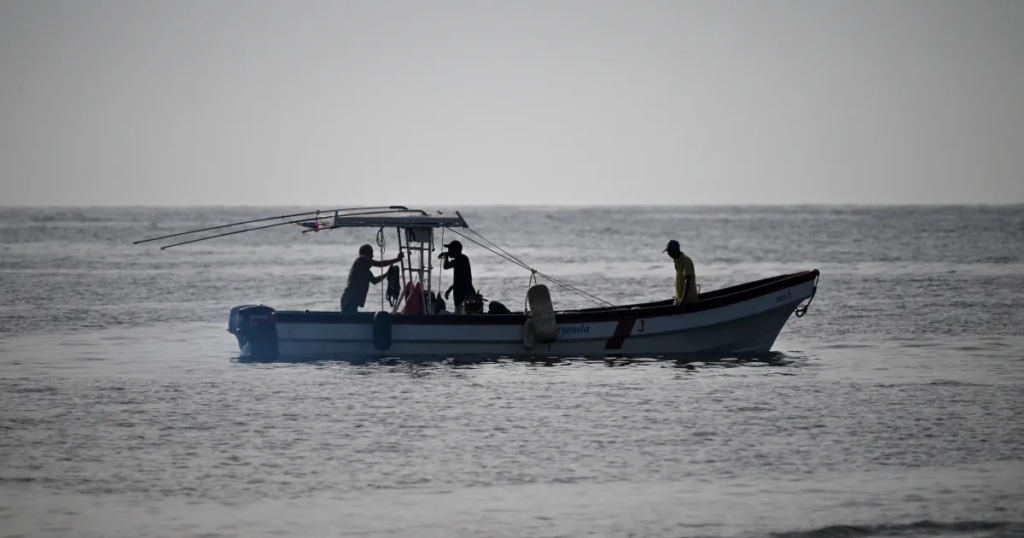US strike on suspected drug vessel in the Caribbean has resulted in survivors, marking the first known incident of its kind. A senior US official confirmed the event but provided no further details.
US strike on suspected drug vessel in the Caribbean has resulted in survivors, marking the first known incident of its kind. A senior US official confirmed the event but provided no further details.
As a result, serious questions are emerging. Did the US military assist the survivors? Are they now in custody? So far, officials have remained silent on the matter.US strike on suspected drug vessel in the Caribbean has resulted in survivors, marking the first known incident of its kind. A senior US official confirmed the event but provided no further details.
As a result, serious questions are emerging. Did the US military assist the survivors? Are they now in custody? So far, officials have remained silent on the matter.As a result, serious questions are emerging. Did the US military assist the survivors? Are they now in custody? So far, officials have remained silent on the matter.

Incident Details Remain Sparse
So far, details remain limited. However, the presence of survivors contrasts sharply with previous strikes. In earlier cases, boats were completely destroyed, and no survivors were reported.
It’s still unclear whether the military offered aid to the survivors. Their current location or legal status also remains unknown.
Furthermore, the Pentagon has yet to comment on the incident or confirm whether the survivors are being detained.
Legal and Ethical Concerns Grow
This latest strike follows a pattern of US military actions in the Caribbean. The targets are often vessels suspected of smuggling drugs from Venezuela.
Previous airstrikes have killed at least 27 people. As a result, legal experts and Democratic lawmakers are voicing concern. They question whether these operations comply with international law.

The US continues to refer to these individuals as “narcoterrorists.” Officials claim the strikes are justified under wartime powers. Meanwhile, the Trump administration says the US is at war with drug cartels linked to Venezuela.
Rising Military Tensions in the Caribbean
The strike comes amid a broader military buildup in the region. US forces now include missile destroyers, F-35 fighter jets, a nuclear submarine, and over 6,500 troops.https://www.youtube.com/watch?v=Ba_XDDmBJLc
Additionally, President Trump confirmed this week that the CIA has been cleared to conduct covert missions in Venezuela. This has fueled speculation that Washington may try to oust President Nicolás Maduro.
Venezuela Pushes Back at United Nations
In response, Venezuelan ambassador Samuel Moncada addressed the UN Security Council. He urged the Council to declare the strikes illegal and called on members to defend Venezuela’s sovereignty.

Leadership Shake-Up Adds to Uncertainty
Adding to the tension, the Pentagon recently shifted control of counter-narcotics operations. The mission will no longer be led by Southern Command. Instead, it will fall under the II Marine Expeditionary Force.
This change surprised military analysts. Southern Command typically oversees operations in Latin America.
Soon after the announcement, Defense Secretary Pete Hegseth revealed that Admiral Alvin Holsey will step down. His resignation will take effect at the end of the year—two years early.

Political Reactions in Washington
Senator Jack Reed, a top Democrat on the Senate Armed Services Committee, expressed serious concern.
“Admiral Holsey’s resignation only deepens my worry that this administration is ignoring key lessons from past military conflicts,” Reed said.
Conclusion
The emergence of survivors from the US strike on suspected drug vessel brings new attention to a secretive and aggressive campaign. Legal, political, and ethical questions continue to mount. As the situation unfolds, the international community is watching closely.strikes, both domestic and international scrutiny is likely to increase.




